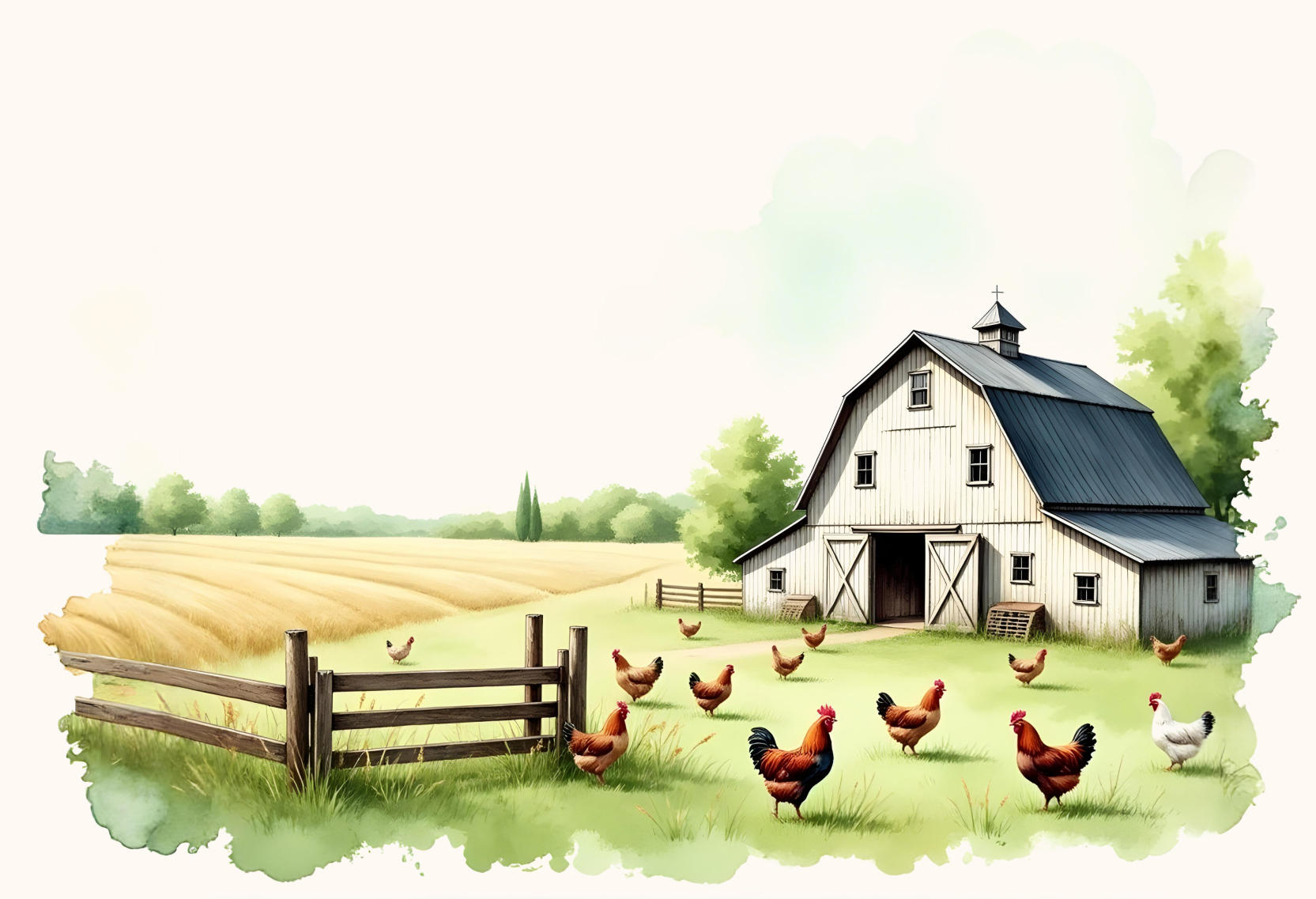What truly makes Ed Olas eggs special — is our chickens
We keep them in conditions that closely mimic their natural habitat: instead of cramped cages and hormone injections, as found on many poultry farms, our chickens live in spacious coops, roam freely outdoors, interact with other animals, and enjoy a leisurely lifestyle.
The chicken breeds that we have on our farm lay eggs only a few times a week, making each one especially valuable and nutritious. We believe that their mental state and happiness can have a direct impact on the taste and quality of the eggs, transforming them into an exceptional product that brings joy and health to everyone who enjoys them.
The chicken breeds that we have on our farm lay eggs only a few times a week, making each one especially valuable and nutritious. We believe that their mental state and happiness can have a direct impact on the taste and quality of the eggs, transforming them into an exceptional product that brings joy and health to everyone who enjoys them.

A sustainable approach to caring for hens and eggs
We care for our hens and the environment by creating natural living conditions. Our sustainable approach allows us to produce healthy, high-quality eggs.
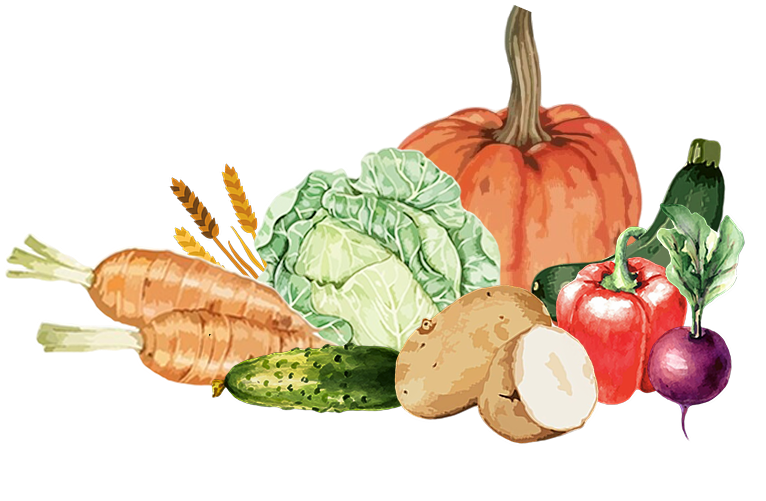
In the summer, our chickens forage on grass and eat vegetables grown on the farm — like potatoes, zucchini, and cucumbers — served fresh and chopped or cooked, following specific guidelines for each type.
We also blend three kinds of grain, which are ground, soaked in boiling water, and left to swell overnight. In winter, we buy them carrots and cabbage, and treat them to seasonal desserts like pumpkin, beets, and sweet peppers.
We also blend three kinds of grain, which are ground, soaked in boiling water, and left to swell overnight. In winter, we buy them carrots and cabbage, and treat them to seasonal desserts like pumpkin, beets, and sweet peppers.
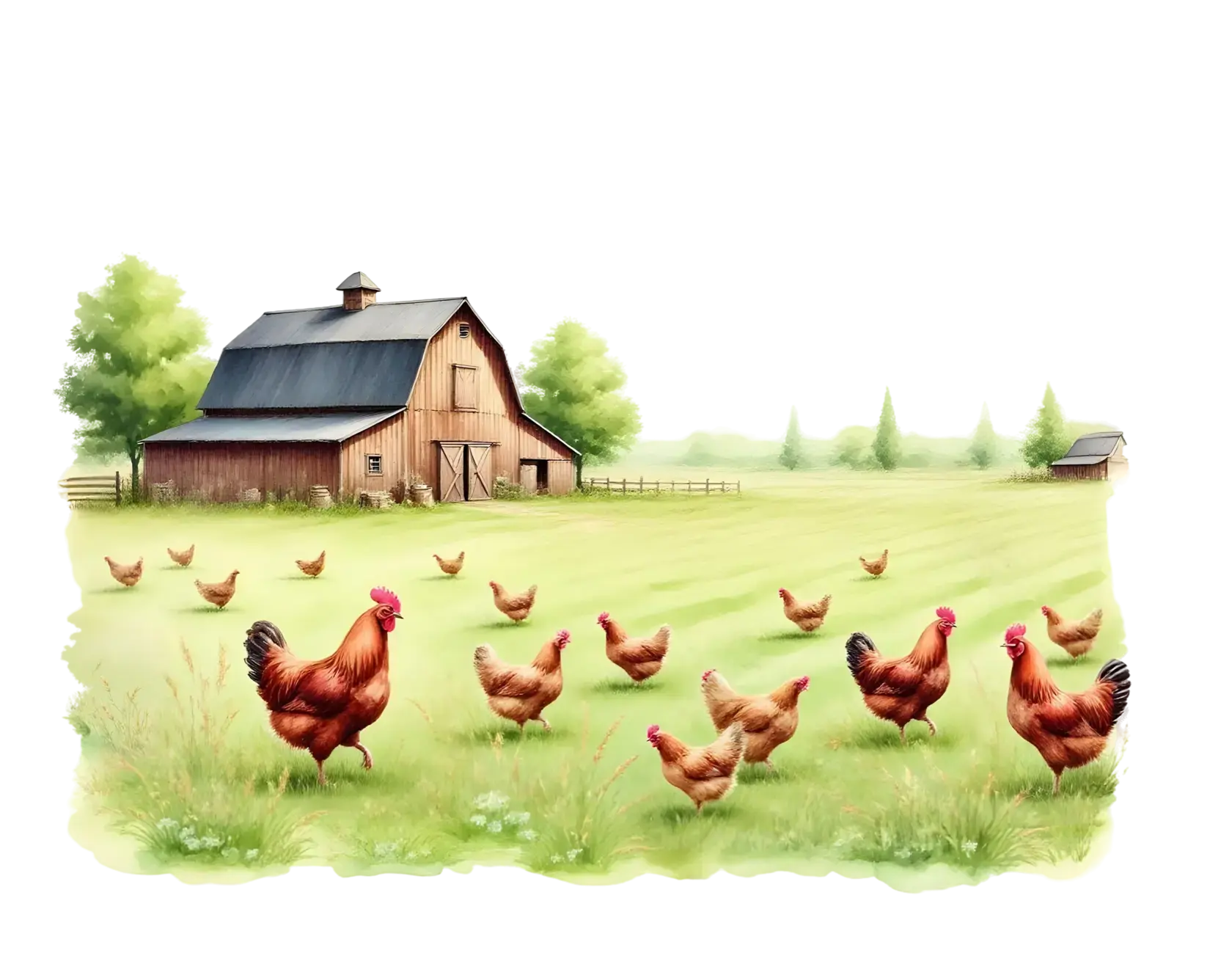
A sustainable approach to caring for hens and eggs
We care for our hens and the environment by creating natural living conditions. Our sustainable approach allows us to produce healthy, high-quality eggs.
Our chickens spend part of the day free-ranging, where they feed on plants. We plant different beneficial herbs such as clover, nettle, spinach, parsley, onions, and more. The chickens enjoy their vitamins in stages — while they graze in one area, the plants have time to grow in another.
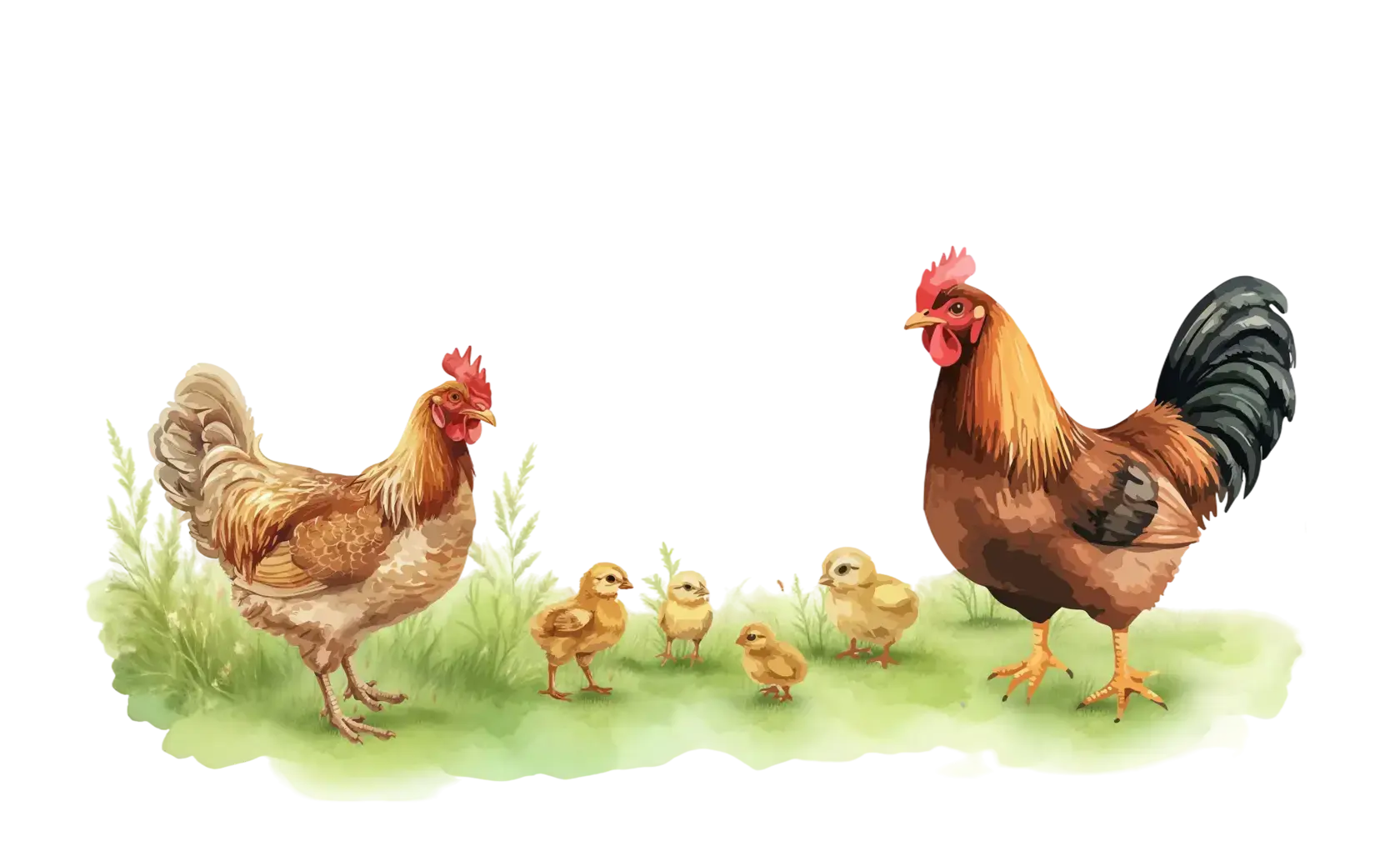
A sustainable approach to caring for hens and eggs
We care for our hens and the environment by creating natural living conditions. Our sustainable approach allows us to produce healthy, high-quality eggs.
If a hen wants to hatch her eggs, we never take them away, as this causes her stress and may even stop her from laying eggs altogether. We also keep one rooster for every eight hens — a ratio that isn’t economically efficient and is rarely practiced on poultry farms, but it keeps our hens happy and allows them to live as it was intended by nature.
A sustainable approach to caring for hens and eggs
We care for our hens and the environment by creating natural living conditions. Our sustainable approach allows us to produce healthy, high-quality eggs.

We are currently building a chicken amusement park to make their lives even more fulfilling. It will feature areas like sand pits, interactive feeders, a pond, scratching posts, and more. As another form of amusement, our chickens listen to classical music every day — it’s been shown to reduce stress levels and improve appetite in animals.

Every morning our hens are greeted by classical music. Studies confirm that it reduces stress levels, improves appetite and even makes eggs tastier.
Listen to music
A sustainable approach to caring for hens and eggs
We care for our hens and the environment by creating natural living conditions. Our sustainable approach allows us to produce healthy, high-quality eggs.

We care for our hens and the environment by creating natural living conditions. Our sustainable approach allows us to produce healthy, high-quality eggs.
A sustainable approach to caring for hens and eggs
In the spirit of zero-waste production, we use chicken manure to fertilize the grasses for them, as well as our walnut saplings and roses. We collect and compost thehttps://collection-rks.ru/page68477003.htmlmanure, using it as a natural fertilizer instead of utilizing nitrates and phosphates.

A sustainable approach to caring for hens and eggs
We care for our hens and the environment by creating natural living conditions. Our sustainable approach allows us to produce healthy, high-quality eggs.
Our egg cartons are made from cellulose cardboard, which is easy to recycle and € 1 discount on the next order. The more cartons you return, the bigger the discount!
We care for our hens and the environment by creating natural living conditions. Our sustainable approach allows us to produce healthy, high-quality eggs.
A sustainable approach to caring for hens and eggs

In the summer, our chickens forage on grass and eat vegetables grown on the farm — like potatoes, zucchini, and cucumbers — served fresh and chopped or cooked, following specific guidelines for each type.
We also blend three kinds of grain, which are ground, soaked in boiling water, and left to swell overnight. In winter, we buy them carrots and cabbage, and treat them to seasonal desserts like pumpkin, beets, and sweet peppers.
We also blend three kinds of grain, which are ground, soaked in boiling water, and left to swell overnight. In winter, we buy them carrots and cabbage, and treat them to seasonal desserts like pumpkin, beets, and sweet peppers.

Our chickens spend part of the day free-ranging, where they feed on plants. We plant different beneficial herbs such as clover, nettle, spinach, parsley, onions, and more. The chickens enjoy their vitamins in stages — while they graze in one area, the plants have time to grow in another.

If a hen wants to hatch her eggs, we never take them away, as this causes her stress and may even stop her from laying eggs altogether. We also keep one rooster for every eight hens — a ratio that isn’t economically efficient and is rarely practiced on poultry farms, but it keeps our hens happy and allows them to live as it was intended by nature.

We are currently building a chicken amusement park to make their lives even more fulfilling. It will feature areas like sand pits, interactive feeders, a pond, scratching posts, and more. As another form of amusement, our chickens listen to classical music every day — it’s been shown to reduce stress levels and improve appetite in animals.

In the spirit of zero-waste production, we use chicken manure to fertilize the grasses for them, as well as our walnut saplings and roses. We collect and compost the manure, using it as a natural fertilizer instead of utilizing nitrates and phosphates.

Our egg cartons are made from cellulose cardboard, which is easy to recycle and are plastic-free. For each returned empty carton, we offer a € 1 discount on the next order. The more cartons you return, the bigger the discount!
Interesting Facts About Chickens


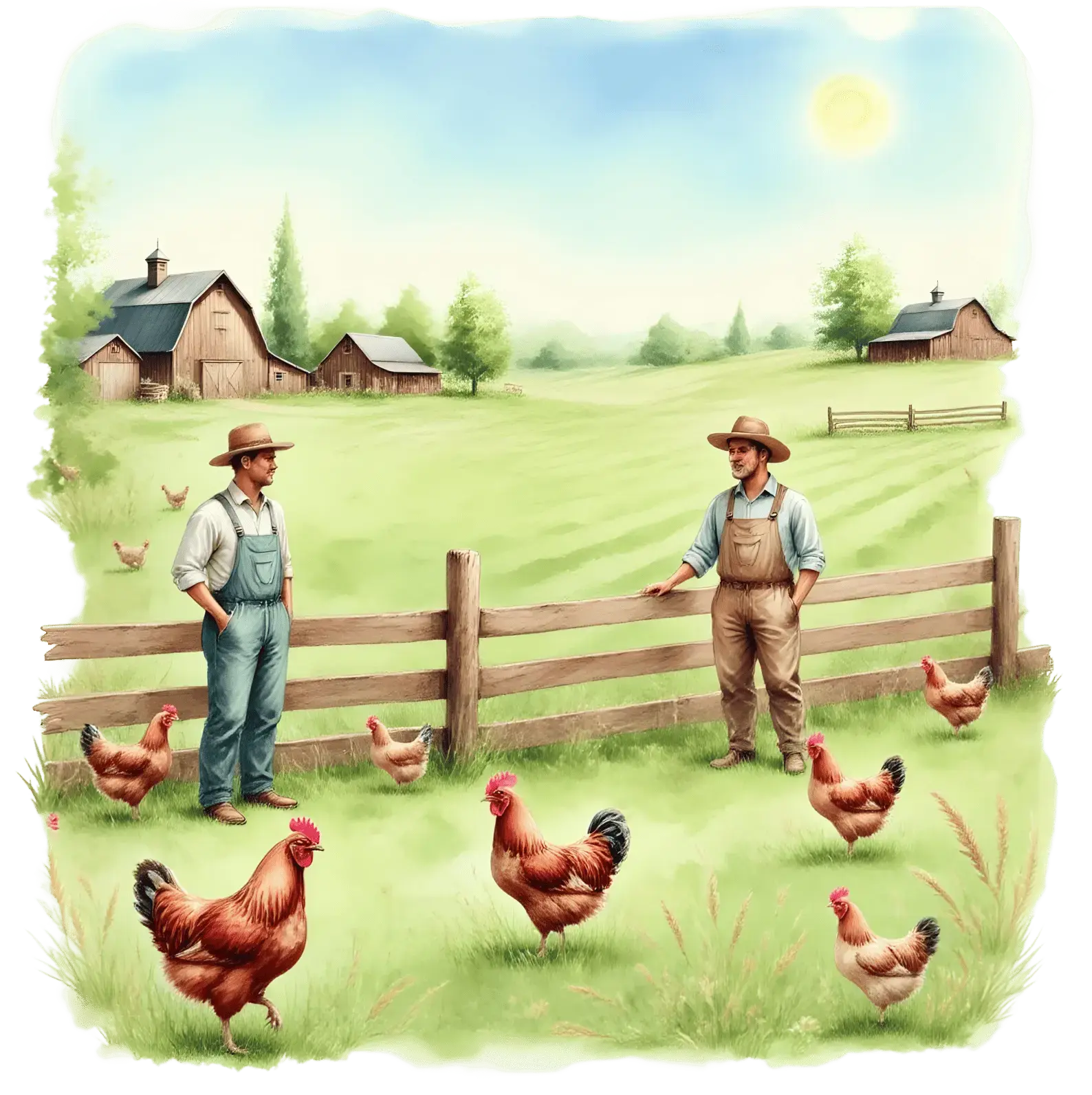
There are more chickens on Earth than people — around 25 billion birds. Chickens outnumber any other bird species

Chickens can remember over 100 different human faces. They can also remember animal faces

A chicken turns its eggs about 50 times a day and can lay more than 300 eggs per year
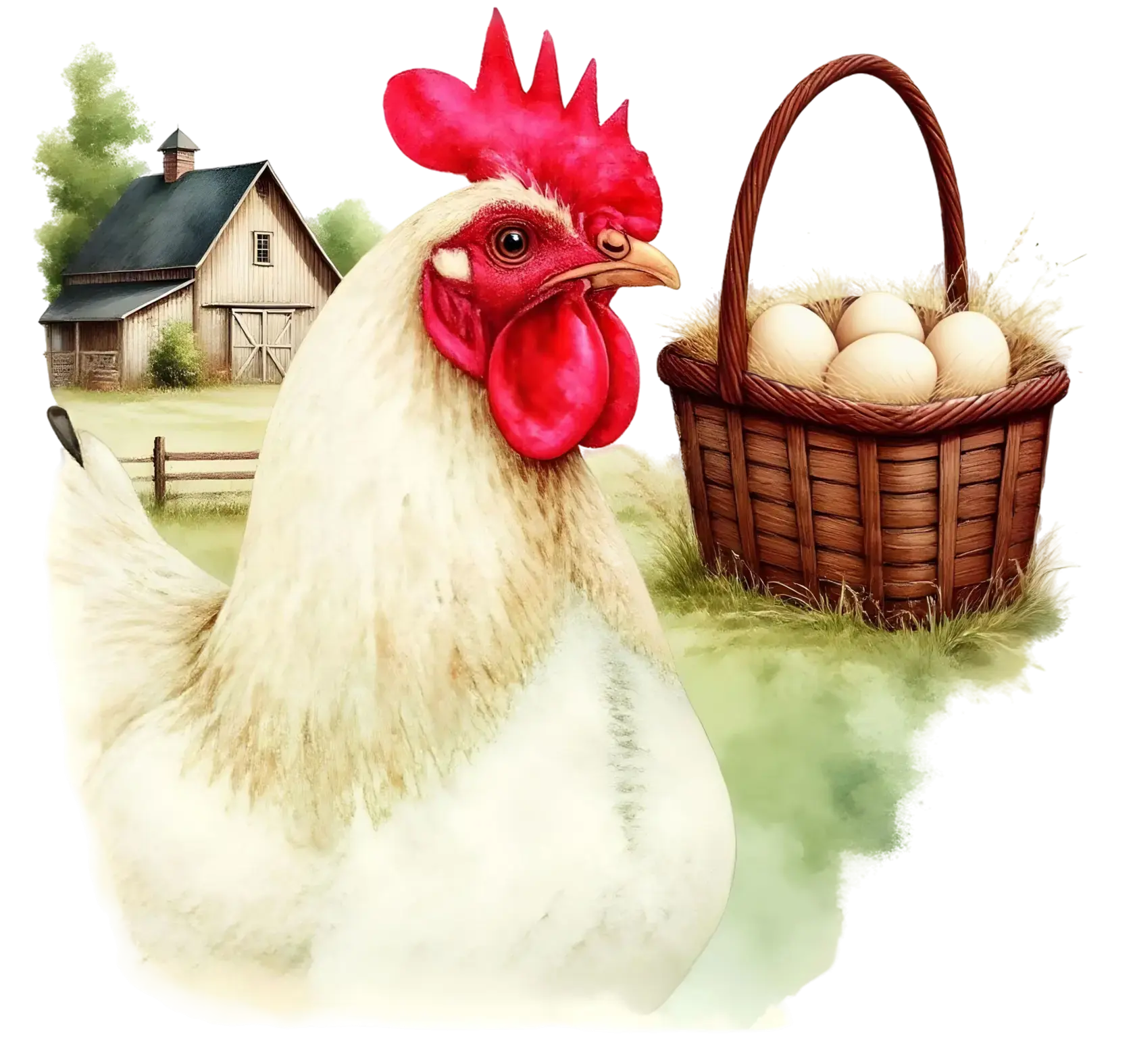
Egg color depends on the chicken’s earlobes: chickens with red earlobes lay brown eggs, while chickens with white earlobes lay white eggs

The record number of eggs laid by a chicken in one day is 7, in one year — 371

As chickens age, they lay fewer eggs, but the eggs themselves become larger
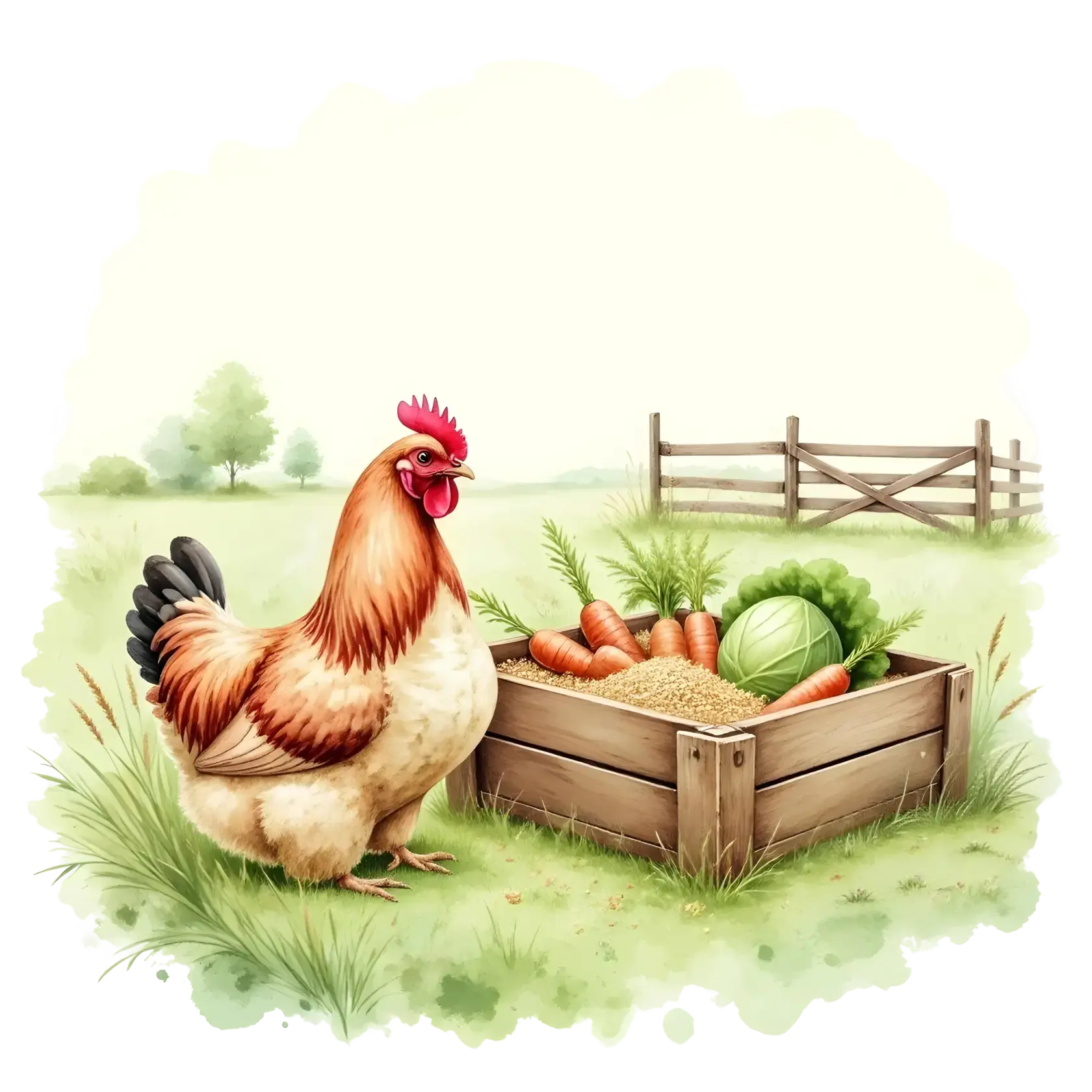
A chicken needs to eat about one and a half kilograms of feed to produce a dozen eggs

A chicken’s body contains 15% more water than a human’s
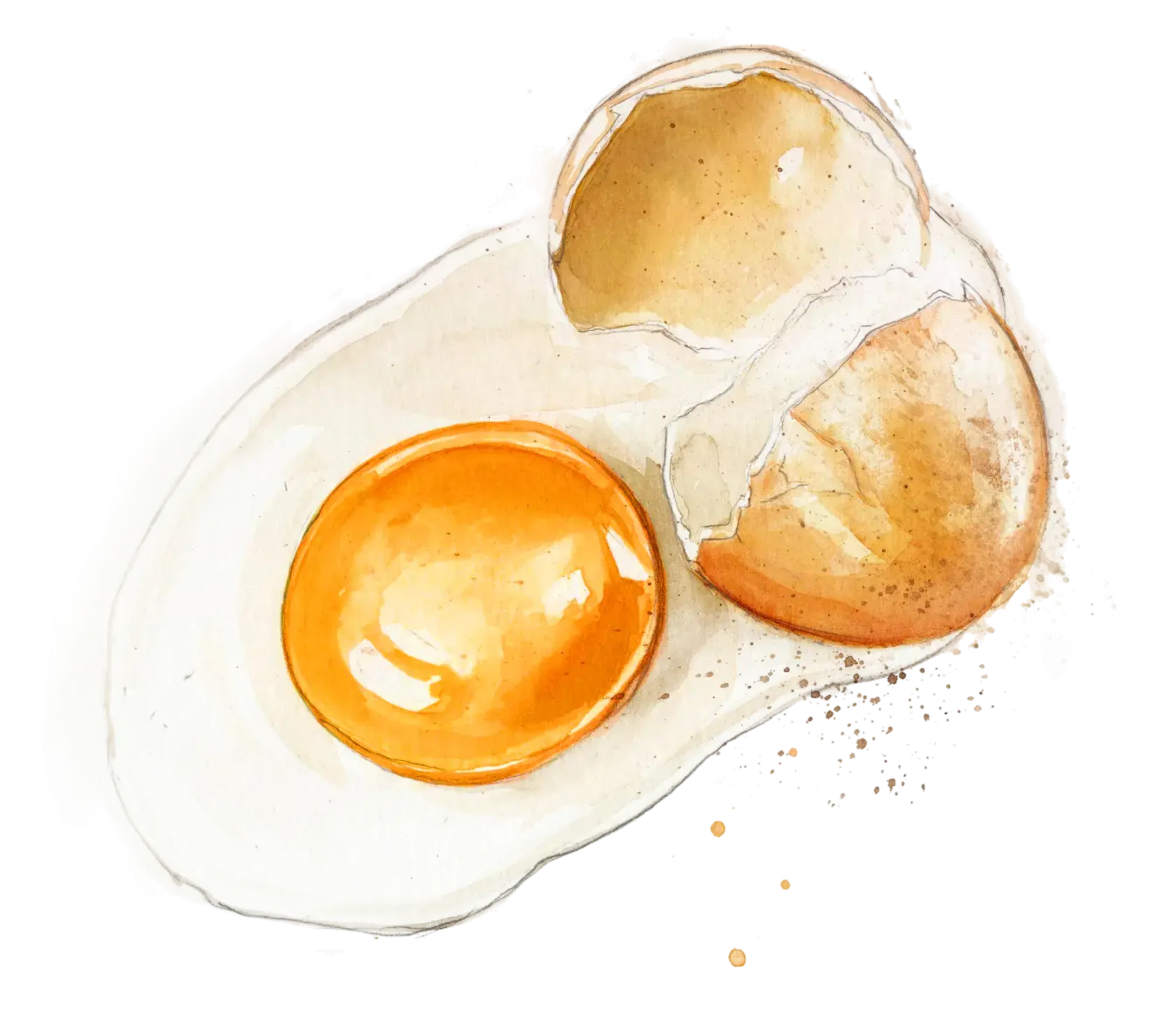
If the egg white is cloudy, it means the egg is fresh
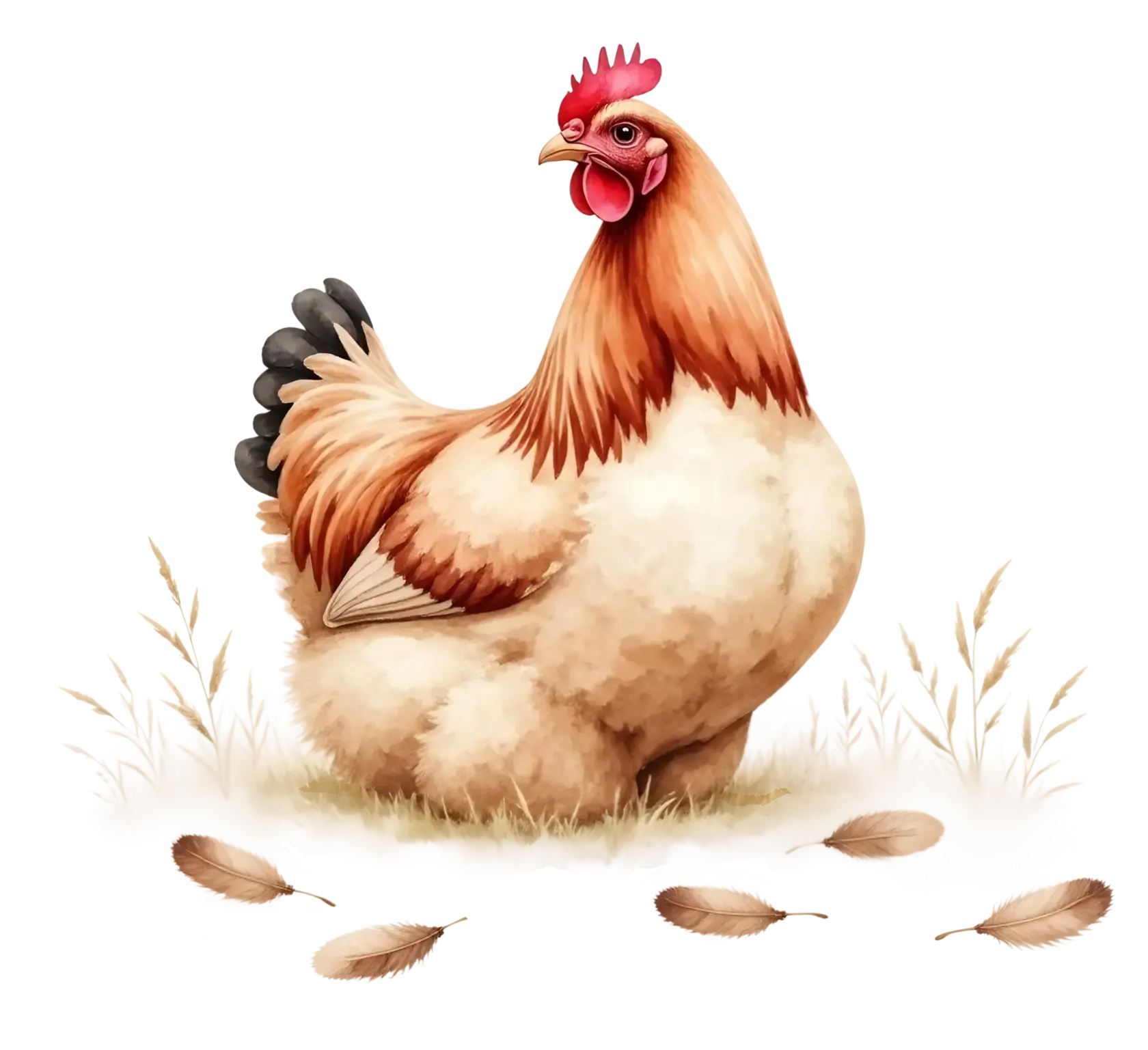
When chickens are stressed, they start losing feathers
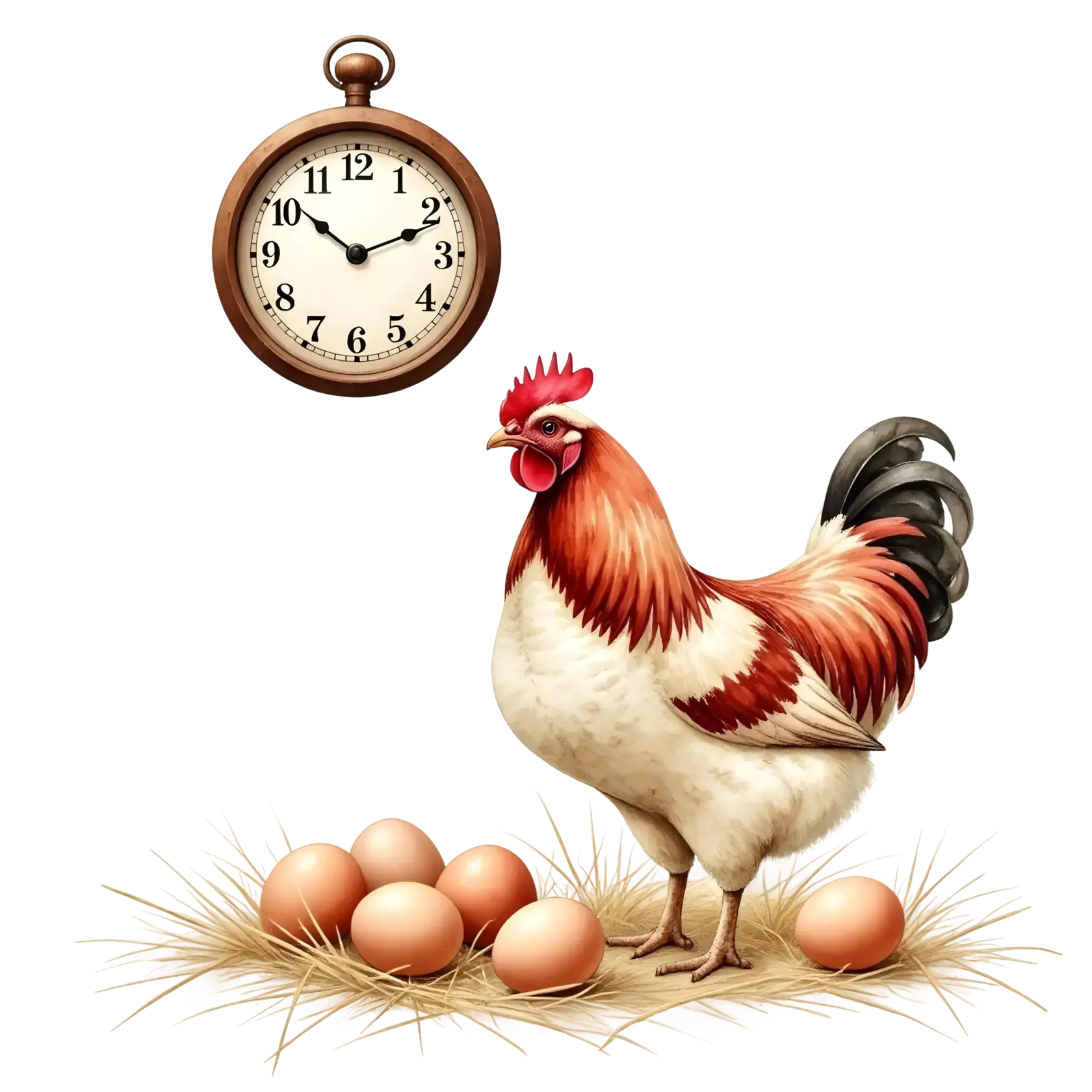
It takes a chicken around 26 hours to produce an egg and 21 days for an egg to incubate and hatch.

When chickens listen to classical music, they start laying larger eggs
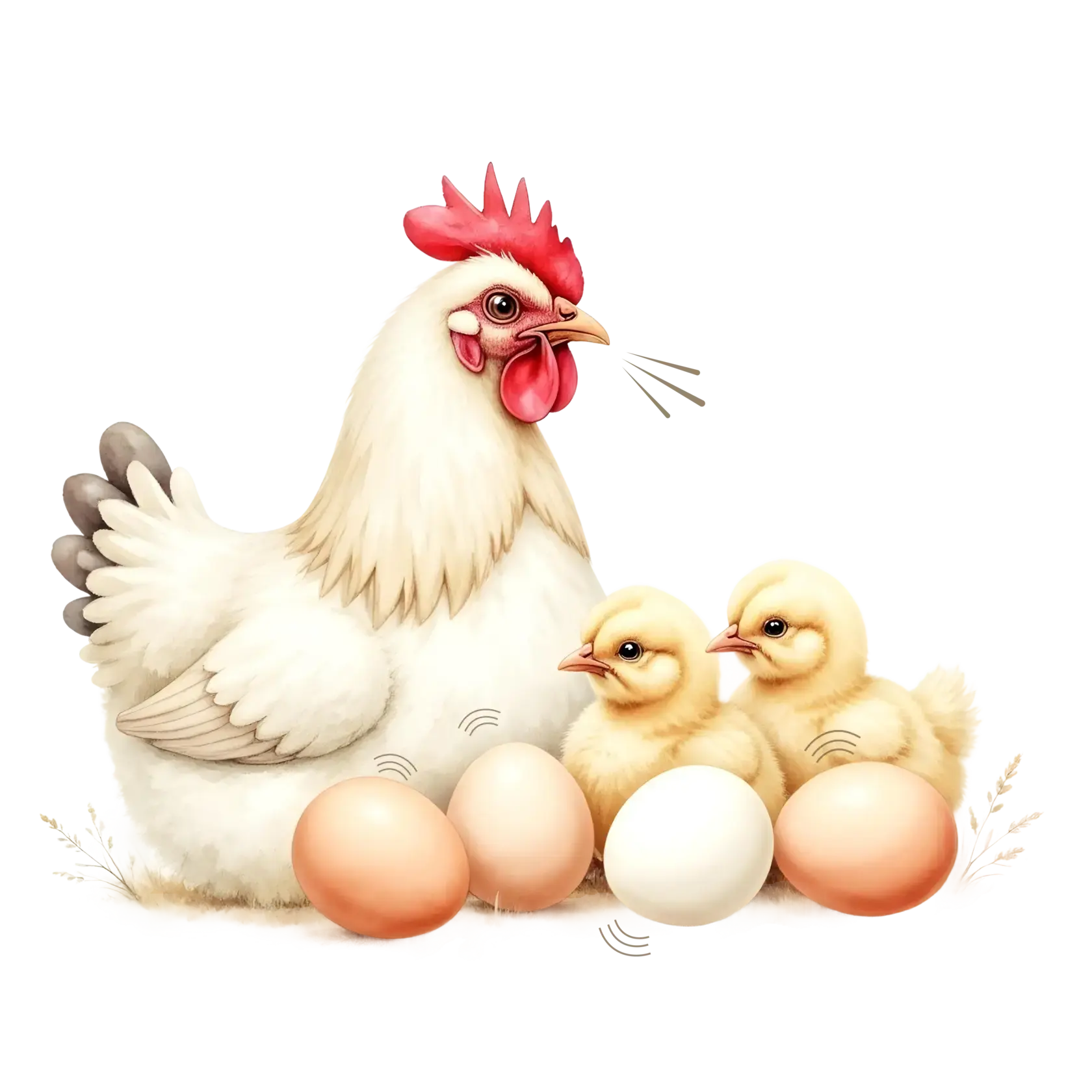
Chickens "talk" to their chicks while they’re still in the egg, and the chicks can chirp back from inside the shell
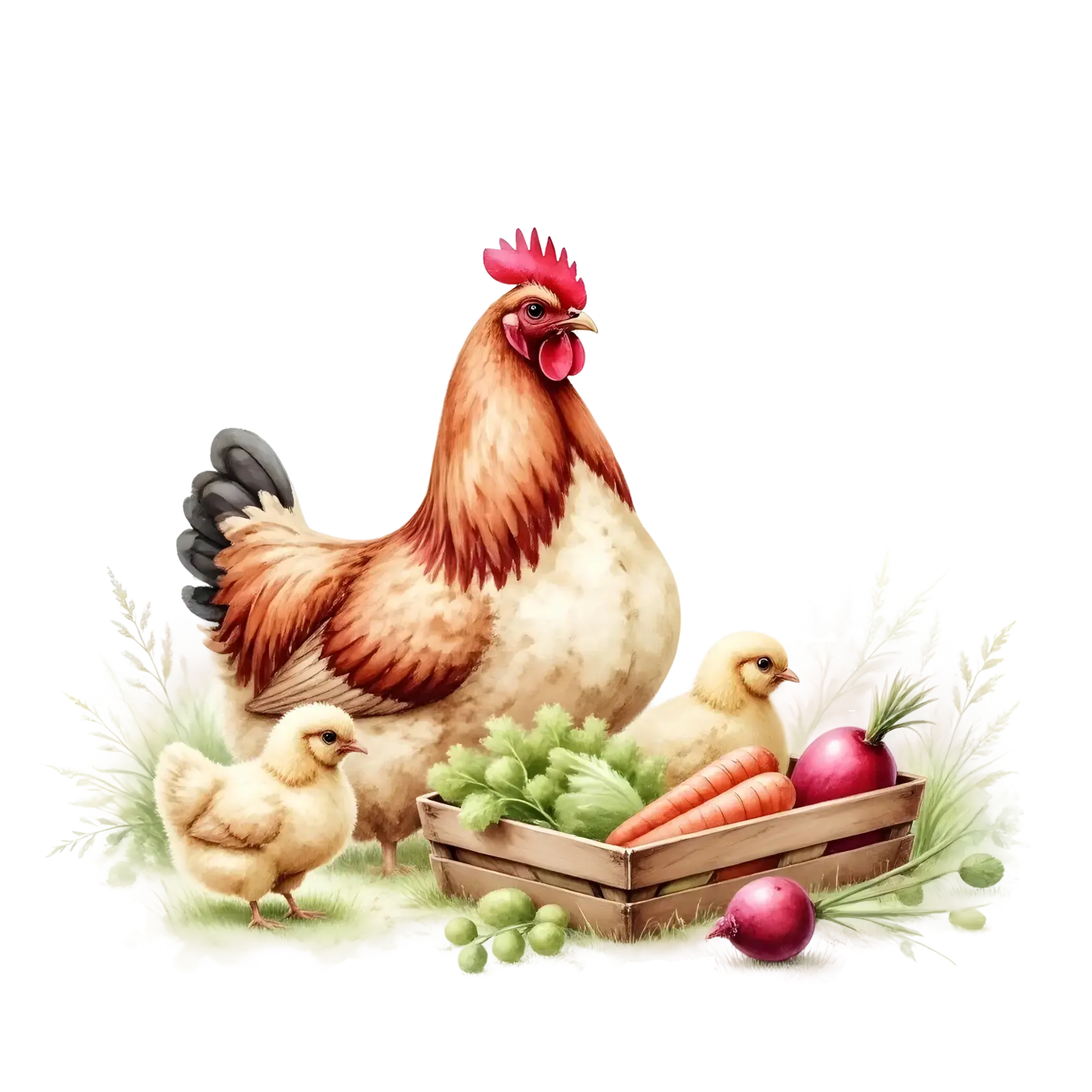
Chickens teach their chicks what to eat and what to avoid








